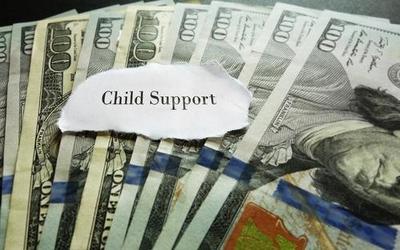Free Initial Consultations
 630-580-6373
630-580-6373With offices in Naperville, Joliet, Wheaton, Plainfield & Chicago
 Divorce is a legally complex process with numerous pitfalls and challenges, which is why parties are advised to each seek their own legal counsel. High asset divorce – a case in which one or both parties has a high net worth or has a higher-than-middle-class income – only further complicates matters. Learn more about the risks associated with a high net worth divorce and how to mitigate against them, and discover how an experienced attorney can help protect your interests and financial future throughout the entire divorce process.
Divorce is a legally complex process with numerous pitfalls and challenges, which is why parties are advised to each seek their own legal counsel. High asset divorce – a case in which one or both parties has a high net worth or has a higher-than-middle-class income – only further complicates matters. Learn more about the risks associated with a high net worth divorce and how to mitigate against them, and discover how an experienced attorney can help protect your interests and financial future throughout the entire divorce process.
Accurate Valuation of the Marital Estate is Critical
Valuation of the marital estate is a critical element in every divorce, but in a high net worth divorce, the importance is further heightened by the complex (and sometimes inconsistent, fluctuating, or changing) assets involved. Keep in mind that many of the assets may not even be in you or your spouse’s name. Instead, they may be listed under the name of a company, or they may be found in overseas accounts, where tax breaks may be more readily available.
 When deciding whether or not to file for Chapter 7 or Chapter 13 bankruptcy, often the choice boils down to the immediate finances. Chapter 7 bankruptcy usually requires a higher upfront payment, typically around $1,000 versus Chapter 13 may offer $0 deposit. Throughout the duration, Chapter 13 is more expensive, approximately $3,000, but many debtors are unable to produce the higher initial costs for the alternative, and Chapter 13 often allows the inclusion of the fees in the repayment plan. Unfortunately, for a significant portion of the population, this decision is costly with lasting effects on the credit for only short-term relief.
When deciding whether or not to file for Chapter 7 or Chapter 13 bankruptcy, often the choice boils down to the immediate finances. Chapter 7 bankruptcy usually requires a higher upfront payment, typically around $1,000 versus Chapter 13 may offer $0 deposit. Throughout the duration, Chapter 13 is more expensive, approximately $3,000, but many debtors are unable to produce the higher initial costs for the alternative, and Chapter 13 often allows the inclusion of the fees in the repayment plan. Unfortunately, for a significant portion of the population, this decision is costly with lasting effects on the credit for only short-term relief.
Debtors Below The Poverty Line Are More Susceptible to Relapse
The low initial costs of Chapter 13 bankruptcy is alluring for many individuals struggling to make ends meet. Armed with the dream of living in a home without collectors calling around the clock and having some money left over at the end of the month, many debtors turn to debt relief options. However, not all bankruptcy options are equal. Chapter 13 operates on a repayment plan, typically about five years in length. So long as payments are kept up to date, collectors are unable to harass clients. However, for the population living under the poverty line and struggling to make ends meet, about half make it through the first year, let alone five years, and the calls begin once more.
 Family courts have favored the mother in divorce proceedings for more than a century, partly because they have always been considered the “natural caregivers” of children. Times are changing, however, and more families using a shared parenting plan model that provides both parents with adequate time with their child. Learn how to determine if this parenting plan model may be appropriate for your family, and discover how an experienced attorney can help to ensure the best interests of your child are preserved throughout the entire legal process.
Family courts have favored the mother in divorce proceedings for more than a century, partly because they have always been considered the “natural caregivers” of children. Times are changing, however, and more families using a shared parenting plan model that provides both parents with adequate time with their child. Learn how to determine if this parenting plan model may be appropriate for your family, and discover how an experienced attorney can help to ensure the best interests of your child are preserved throughout the entire legal process.
Understanding the Shared Parenting Plan Trend
During the 1950s and 60s, more women began to enter the workforce. That was when divorce laws started to change, offering no-fault options in some states and protecting what the courts considered to be the “best interests” of the child across the U.S. However, to really understand what was in a child’s best interests, the courts had to begin looking at cold, hard facts.
 American families look quite different today than they did just a few short decades ago. In fact, recent studies have determined that approximately half of all families are blended, meaning there may be step-parents, step- or half-siblings, or any combination of the three. Some of these blended families co-parent with the biological parent (and perhaps the biological parent’s partner), but others find that a stepparent adoption is more appropriate for their situation. Learn more about the process, including how to determine if this may be an option for your family, and discover what an experienced attorney can do to help in the following sections.
American families look quite different today than they did just a few short decades ago. In fact, recent studies have determined that approximately half of all families are blended, meaning there may be step-parents, step- or half-siblings, or any combination of the three. Some of these blended families co-parent with the biological parent (and perhaps the biological parent’s partner), but others find that a stepparent adoption is more appropriate for their situation. Learn more about the process, including how to determine if this may be an option for your family, and discover what an experienced attorney can do to help in the following sections.
Is Stepparent Adoption a Viable Option for Your Family?
Illinois state law does not allow a child to have three legal parents, so stepparent adoption may not be appropriate in every situation. Typically, they are reserved for situations in which one of the biological parents is deemed unfit or unsafe, but a stepparent adoption can also be pursued if the biological parent is uninterested in maintaining a relationship with the child. In the latter situation, parents and adopting step-parents must understand that consent—usually from the biological parent that would be relinquishing or losing their rights, but also sometimes the child, depending on the circumstances—is a critical element in stepparent adoption cases.
 Parents who receive child support often rely on it to ensure their child’s needs are met. What happens, though, if the paying parent falls behind or refuses to make their payments? Besides placing a financial strain on the receiving parent, and potentially the child as well, the paying parent then becomes delinquent on their support. If that support is paid under an existing order with the courts, the receiving parent also has recourse for pursuing their overdue support. Learn more, including when the assistance of an experienced family law attorney may be necessary.
Parents who receive child support often rely on it to ensure their child’s needs are met. What happens, though, if the paying parent falls behind or refuses to make their payments? Besides placing a financial strain on the receiving parent, and potentially the child as well, the paying parent then becomes delinquent on their support. If that support is paid under an existing order with the courts, the receiving parent also has recourse for pursuing their overdue support. Learn more, including when the assistance of an experienced family law attorney may be necessary.
Determining How Much Support is Owed
Before pursuing overdue child support, a receiving parent is encouraged to first determine how much support is owed. If the payments are made through the State Disbursement Unit (SDU), the parent can request payment records directly from SDU. Parents who receive their payments directly through the courts can request such records from the circuit clerk. If payments are made directly to the receiving parent, they must bear the burden of proof in court, meaning they must supply the court with evidence that proves the child support payments were never made.
 Unmarried fathers often assume that an agreement with the mother, and perhaps some financial assistance, will satisfy their desire to be a part of the child’s life. Sadly, this is rarely the case. Relationships break down, and issues along the way may jeopardize a father’s time and say-so in the child’s life. Thankfully, there is a way to protect all your fathers’ rights. Learn more in the following sections, including how an experienced attorney can help.
Unmarried fathers often assume that an agreement with the mother, and perhaps some financial assistance, will satisfy their desire to be a part of the child’s life. Sadly, this is rarely the case. Relationships break down, and issues along the way may jeopardize a father’s time and say-so in the child’s life. Thankfully, there is a way to protect all your fathers’ rights. Learn more in the following sections, including how an experienced attorney can help.
Legally Establishing a Father’s Rights
Although fathers can sign the Voluntary Acknowledgement of Paternity (“VAP”) to have their name placed on the birth certificate, it does not establish the father’s rights to spend time with the child, nor does it give them any decision-making power in the child’s life. Only a judge can provide these rights. As such, fathers are encouraged to seek legal rights over their child, even if their name is on the child’s birth certificate.
 Even in the simplest of cases, divorce can be a complex matter. If you add in assets that are difficult to divide, such as a retirement account or pension plan, the process can become even more difficult to effectively navigate. Thankfully, divorcing parties can improve the outcome of their case by ensuring they have the assistance of a seasoned divorce team on their side. Learn more about retirement plans in divorce, including the importance, challenges, and risks completing a qualified domestic relations order (QDRO) with help from the following information.
Even in the simplest of cases, divorce can be a complex matter. If you add in assets that are difficult to divide, such as a retirement account or pension plan, the process can become even more difficult to effectively navigate. Thankfully, divorcing parties can improve the outcome of their case by ensuring they have the assistance of a seasoned divorce team on their side. Learn more about retirement plans in divorce, including the importance, challenges, and risks completing a qualified domestic relations order (QDRO) with help from the following information.
What is a QDRO?
Most often seen in divorce proceedings, qualified domestic relations orders are used to instruct the plan administrator on how the benefits of a retirement plan will be paid to a non-employee (the spouse of an employee). Required only in ERISA-qualified plans, these documents are complicated and subject to approval from the administrator. There are also federal regulations that must be adhered to and tax consequences that one must consider when completing their QDRO. As such, individuals are discouraged from pursuing a QDRO without the assistance of an experienced legal professional.
 Parents are not the only influential people in a child’s life; grandparents can have a lasting and loving impact as well. Sadly, there are situations in which a grandparent may be denied time or visitation with their grandchild. What rights might you have while facing such a situation, and how can you exercise them? The following information explains, and it outlines how an experienced family law attorney can help.
Parents are not the only influential people in a child’s life; grandparents can have a lasting and loving impact as well. Sadly, there are situations in which a grandparent may be denied time or visitation with their grandchild. What rights might you have while facing such a situation, and how can you exercise them? The following information explains, and it outlines how an experienced family law attorney can help.
Grandparent’s Rights Under Illinois Law
While Illinois law does recognize the importance of a child’s extended family – especially during divorce and other family law proceedings - not every grandparent has legal rights to exercise. Thankfully, there are certain extenuating circumstances that may open an opportunity to pursue legal rights to a grandchild. These situations include:
 One of the most commonly asked questions for people considering bankruptcy is, "what is a bankruptcy discharge?" A bankruptcy discharge is a court order that makes previously charged debts permanently unenforceable, effectively wiping the slate clean. The debtor becomes no longer responsible for the payment. As an additional benefit, all harassing calls, letters, and other forms of communication from creditors attempting to collect the money must stop. If collection attempts continue, creditors risk being in held in contempt of court and face potential punishments.
One of the most commonly asked questions for people considering bankruptcy is, "what is a bankruptcy discharge?" A bankruptcy discharge is a court order that makes previously charged debts permanently unenforceable, effectively wiping the slate clean. The debtor becomes no longer responsible for the payment. As an additional benefit, all harassing calls, letters, and other forms of communication from creditors attempting to collect the money must stop. If collection attempts continue, creditors risk being in held in contempt of court and face potential punishments.
Are All of My Bills Dischargeable?
Not all debts discharge. Some obligations remain valid even after the completion of the bankruptcy process. Eligibility for payment discharge depends on the chosen bankruptcy chapter. Typically, Chapter 13 has a broader range of dischargeable payments. The following expenses are commonly non-dischargeable:
 Terminating a parent’s rights to their child is not something that occurs regularly, but it is sometimes necessary to ensure the safety and well-being of the child. How, exactly, does one go about doing this? Can it be applied in all situations, or are there only certain scenarios in which a parent’s rights can be terminated? The following answers these questions, and it provides important details on how an experienced family law attorney can assist you with the process, should it be warranted in your case.
Terminating a parent’s rights to their child is not something that occurs regularly, but it is sometimes necessary to ensure the safety and well-being of the child. How, exactly, does one go about doing this? Can it be applied in all situations, or are there only certain scenarios in which a parent’s rights can be terminated? The following answers these questions, and it provides important details on how an experienced family law attorney can assist you with the process, should it be warranted in your case.
Terminating a Parent’s Rights for Stepparent Adoption
Perhaps the best scenario in which a parent’s rights may be terminated is when there is a prospective adopting stepparent who wants to become the child’s legal guardian. Mostly, this is done with the consent of the biological parent. However, there are scenarios in which the family must go through the courts to prove that the biological parent is unfit, unsafe, or otherwise incapable of providing the love and support that the child deserves. In either scenario, the guidance and assistance of an experienced attorney is highly recommended. Note that grandparents, siblings, and other family members may adopt a child if both parents are willing to terminate their parental rights.
